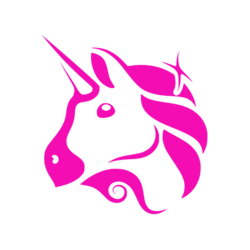Uniswap and DeFi Education Fund Advocate for Individual Status of DAOs in SEC Regulations
UNI/USDT
$95,366,119.87
$3.608 / $3.468
Change: $0.1400 (4.04%)
-0.0037%
Shorts pay
Contents
-
The DeFi Education Fund and Uniswap are championing a novel regulatory approach, advocating for decentralized autonomous organizations (DAOs) to be viewed as individuals rather than companies by the SEC.
-
This perspective emerges amid growing concerns about excessive regulatory scrutiny on decentralized finance, emphasizing the need for clarity in distinguishing the nature of DAOs.
-
Hester Peirce’s open invitation for comments on cryptocurrency regulation has sparked significant discourse, with DAOs presenting unique challenges to conventional regulatory frameworks.
This article explores the DeFi Education Fund and Uniswap’s stance on the SEC’s treatment of DAOs, emphasizing the need for a balanced regulatory approach.
The Case for Recognizing DAOs as Individuals
The ongoing debate surrounding the regulation of decentralized autonomous organizations (DAOs) is critical as the crypto landscape evolves. The DeFi Education Fund and Uniswap’s recent letter to the SEC contends that treating DAOs like traditional companies fails to recognize their unique structure and governance. The letter cites that if a DAO possesses a sufficiently decentralized network formed by a diverse set of token holders, it should not be classified under the Howey test as a security.
This classification could potentially enable DAOs to operate with greater freedom, fostering innovation and decentralization in the cryptocurrency ecosystem. In this context, the authors argue that the SEC should recalibrate its approach, moving away from rigid frameworks that do not accommodate the versatile nature of decentralized projects.
Impacts on the Regulatory Landscape
The shift in regulatory tones can be linked to leadership changes within the SEC. Under former Trump administration appointee Paul Atkins, there has been a noticeable relaxation of enforcement actions that previously hampered crypto-related development. Atkins’s acknowledgment of blockchain technology’s potential highlights a pivot towards facilitating innovation rather than constraining it.
Moreover, the anticipated report from the Crypto Task Force, confirmed during a recent SEC oversight hearing, is expected to provide substantial insights into the current and future regulatory environment for cryptocurrencies. As discussions unfold, the importance of balancing regulation with innovation remains paramount.
Future Engagement and Opportunities
With ongoing roundtable discussions involving industry leaders, the SEC is poised to establish a more cohesive framework for cryptocurrency regulation. Stakeholders in the crypto sphere are encouraged to remain engaged, providing insights and feedback that can shape future policies.
For DAO founders and members, this presents an opportunity to advocate for recognition as distinct entities within regulatory frameworks, thereby promoting a more favorable environment for decentralized projects. The implications of such a classification could lead to increased participation and investment in the sector, further bolstering the decentralized economy.
Conclusion
As discussions regarding the treatment of DAOs by the SEC continue, it is evident that clarity and recognition of their decentralized nature are crucial for fostering innovation in the cryptocurrency landscape. The arguments presented by the DeFi Education Fund and Uniswap underscore the need for a balanced approach to regulation that maintains industry growth while ensuring consumer protection. The future of crypto regulation may well hinge on the SEC’s willingness to adapt its frameworks in light of rapidly evolving decentralized frameworks.
Comments
Other Articles
Bitcoin Price Analysis: Will the Uptrend Continue?
2/9/2026
Ethereum 2.0 Update: How Will It Affect the Crypto Market?
2/8/2026
The Coming of Altcoin Season: Which Coins Will Stand Out?
2/7/2026
DeFi Protocols and Yield Farming Strategies
2/6/2026
